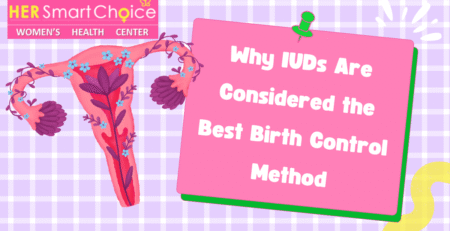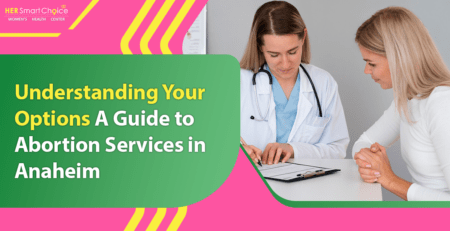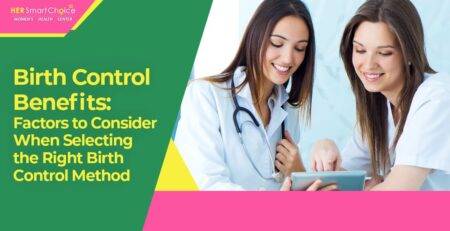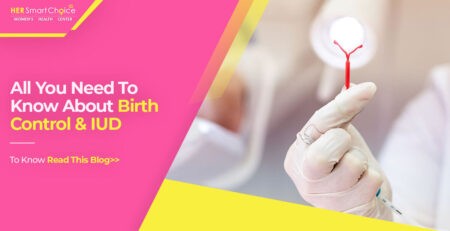Can I Get Pregnant After Being on Birth Control for 10 Years?

Long-term birth control use does not cause permanent infertility, and most individuals regain their natural fertility within months of stopping, even after a decade of use. This article explains how hormonal and non-hormonal contraception works, outlines the typical timeline for ovulation return, describes physical and hormonal adjustments, and offers actionable strategies to optimize your chances of conception. You’ll also learn to dispel common myths, compare method-specific fertility impacts, set realistic expectations for the first post-contraceptive year, and identify helpful visual aids for clear understanding.
Follow Us!
How Does Long-Term Birth Control Affect Fertility?
Long-term contraception temporarily suppresses ovulation and alters cervical mucus, but it does not damage ovarian reserve or egg quality, allowing fertility to rebound once hormones normalize.
What Is the Mechanism of Birth Control in Preventing Pregnancy?
Hormonal methods prevent pregnancy by suppressing the hypothalamic-pituitary-ovarian axis, thereby inhibiting ovulation, thickening cervical mucus to block sperm, and thinning the uterine lining to reduce implantation likelihood. Non-hormonal devices like the copper IUD create a local inflammatory response hostile to sperm movement. These mechanisms ensure near-complete contraceptive effectiveness without altering long-term ovarian function. IUDs are considered the best birth control method.
Does Using Birth Control for 10 Years Cause Permanent Infertility?
No, extensive studies confirm that prolonged hormone exposure does not reduce ovarian follicle count or impair egg quality. Research indicates ovarian reserve markers such as AMH (anti-Müllerian hormone) return to baseline within months of discontinuation, demonstrating full reversibility of contraceptive effects and preserving natural fertility potential.
Fertility After Contraception
Research indicates that the ovarian reserve markers, such as AMH (anti-Müllerian hormone), return to baseline levels within months of discontinuing birth control, demonstrating the full reversibility of contraceptive effects and preserving natural fertility potential.
Practice Committee of the American Society for Reproductive Medicine, Fertility and Sterility (2013)
This research supports the article’s claim that long-term birth control use does not cause permanent infertility.
Impact of Age on Fertility
Age is a primary determinant of fertility decline, with ovarian reserve and egg quality diminishing notably after age 35. Birth control history has no bearing on this age-related decrease, making maternal age the more critical factor in conception planning.
American College of Obstetricians and Gynecologists, ACOG (2020). Read more
This citation reinforces the article’s emphasis on age as a key factor influencing fertility.
What Is the Typical Timeline to Get Pregnant After Stopping Birth Control?

After discontinuation, most individuals experience a return to fertility within a few months to a year, depending on the contraception type and individual factors.
The table below summarizes average timeframes for ovulation and conception readiness by method:
| Method | Mechanism | Typical Return Timeline |
|---|---|---|
| Combined Oral Pills | Hormone suppression of ovulation | 1–3 months |
| Hormonal IUD | Local progestin release | 1 month |
| Copper IUD | Intrauterine sperm barrier | Immediate |
| Depo-Provera Injection | Progestin depot suppression | 10–18 months |
| Patch & Vaginal Ring | Transdermal or vaginal hormone release | 1–3 months |
| Implant | Subdermal progestin implant | 1–6 months |
Most methods allow ovulation to resume rapidly, and about 83% of users conceive within 12 months regardless of prior duration of use.
Return to Fertility Timeline
Approximately 83% of individuals conceive within a year of discontinuing contraception, with higher rates in those under 35 and without underlying fertility issues.
Hatcher, R. A., et al., Contraceptive Technology (2011) Read more
This supports the article’s discussion of the typical timeline for getting pregnant after stopping birth control.
How Soon Does Fertility Return After Stopping Birth Control Pills?
Fertility typically returns within one to three menstrual cycles after stopping combination pills, as estrogen and progestin levels decline and the HPO axis resumes normal signaling.
What Is the Fertility Return Timeline After IUD Removal?
With both hormonal and copper IUDs, fertility often returns in the first cycle post-removal because there is no systemic hormone buildup. Copper IUD users may see immediate ovulation, while hormonal IUD users may wait one menstrual cycle for optimal lining development.
How Long Does It Take to Conceive After the Birth Control Shot (Depo-Provera)?
Depo-Provera’s progestin depot can delay ovulation for an average of 10 months after the last injection, with some users experiencing delays up to 18 months before regular cycles resume.
What About Fertility After Stopping Other Methods Like Patch, Ring, or Implant?
Fertility return after removing the patch or ring parallels pill discontinuation (1–3 months), while implants often normalize ovulation within six months as the subdermal progestin slowly clears from the bloodstream.
What Hormonal and Physical Changes Occur After Stopping Birth Control?
When you stop hormonal contraception, your endocrine system transitions from synthetic hormones to self-regulated ovulation cycles, leading to noticeable changes in menstrual patterns and physical symptoms.
How Does Hormonal Rebalancing Affect Ovulation and Menstrual Cycles?
Restoration of natural estrogen and progesterone rhythms triggers follicle maturation, ovulation, and cyclic endometrial thickening. Initial cycles may be anovulatory or irregular as the hypothalamus and pituitary recalibrate their gonadotropin output.
What Are Common Side Effects After Discontinuing Birth Control?
Many individuals experience:
- Irregular or heavy periods
- Acne flare-ups
- Mood swings or transient anxiety
- Headaches or breast tenderness
These symptoms reflect the body’s adjustment and typically subside within three to six cycles as endogenous hormone levels stabilize.
When Should I Consult a Healthcare Provider About Post-Birth Control Symptoms?
Seek medical advice if symptoms persist beyond six months, if menstrual bleeding is excessively heavy (soaking through pads or tampons hourly), or if there are signs of severe hormonal imbalance (e.g., unrelenting migraines, extreme mood changes). Early evaluation can identify underlying conditions or guide fertility assessments.
How Can I Optimize My Chances of Getting Pregnant After Long-Term Birth Control?

Optimizing conception involves precise cycle tracking, targeted lifestyle improvements, and timely medical support when needed.
How Do I Track Ovulation and Menstrual Cycles Effectively?
Use a combination of:
- Basal Body Temperature Charting to detect post-ovulatory temperature shifts.
- Ovulation Predictor Kits that measure luteinizing hormone surges.
- Cervical Mucus Monitoring to observe fertile-phase mucus changes.
Consistent record-keeping establishes your fertile window and improves timing accuracy.
What Lifestyle Changes Support Fertility After Birth Control?
Adopt these evidence-based practices:
- Maintain a balanced diet rich in folate, omega-3s, and antioxidants.
- Engage in moderate exercise to support hormonal balance.
- Manage stress through mindfulness or yoga to lower cortisol levels.
- Avoid tobacco, limit alcohol, and maintain a healthy BMI between 18.5 and 24.9.
Healthy habits reinforce endocrine function and gamete quality.
When Is It Important to See a Fertility Specialist or Doctor?
Consult a specialist if you are over 35 and have not conceived within six months, or under 35 with more than 12 months of unsuccessful attempts. Early assessment of ovarian reserve, partner sperm analysis, and pelvic imaging can accelerate diagnosis and treatment if needed.
What Are the Common Myths About Fertility After Long-Term Birth Control?
Separating fact from fiction helps you plan realistically and avoid unnecessary worry.
Does Birth Control Affect Egg Quality or Cause Infertility?
No; multiple large-scale studies demonstrate that hormonal contraception neither depletes the ovarian follicle pool nor compromises egg integrity. Fertility returns to the individual’s baseline level after washout of contraceptive hormones.
Can Long-Term Birth Control Use Delay Pregnancy Permanently?
Long-term use delays only temporarily; once synthetic hormones clear, normal ovulatory cycles resume. Any perceived delay is tied to the specific method’s clearance time, not cumulative duration of prior use.
How Does Age Compare to Birth Control Use in Affecting Fertility?
Age is the primary determinant of fertility decline, with ovarian reserve and egg quality diminishing notably after 35. Birth control history has no bearing on this age-related decrease, making maternal age the more critical factor in conception planning.
What Are the Differences Between Birth Control Methods and Their Impact on Fertility?
Understanding method-specific return timelines helps set accurate expectations when planning pregnancy.
| Method | Hormonal? | Return Time | Key Feature |
|---|---|---|---|
| Pills, Patch, Ring | Yes | 1–3 months | Systemic hormone clearance |
| Hormonal IUD, Implant | Yes | 1–6 months | Local vs. subdermal progestin |
| Depo-Provera Shot | Yes | 10–18 months | Depot release prolongs suppression |
| Copper IUD | No | Immediate | Non-hormonal, local inflammatory effect |
How Do Hormonal Methods Like Pills, Patch, and Ring Affect Fertility Return?
These combined methods suppress ovulation via systemic estrogen and progestin; once stopped, hormone levels drop within days and ovulatory cycles typically resume in one to three months.
How Does the Copper IUD Differ in Fertility Impact?
A copper IUD provides immediate fertility return because no exogenous hormones are involved; sperm toxicity and uterine environment changes cease upon removal.
What Is Unique About Fertility After Using the Birth Control Shot or Implant?
The shot’s prolonged progestin depot can delay ovulation up to 18 months, while implants clear more quickly, often allowing cycles to restart within six months. Monitoring follicular development helps predict individual timelines.
What Should I Expect During the First Year After Stopping Birth Control?
The first twelve months involve cycle normalization, fertility assessments, and emotional adjustments as you transition toward conception.
How Common Are Irregular Periods and How Long Do They Last?
Up to 50% of individuals experience irregular cycles for three to six months post-contraception; these irregularities reflect endocrine recalibration and generally settle into predictable patterns by month six.
What Are Signs of Normal Fertility Return Versus When to Seek Help?
Normal return signs include predictable ovulation symptoms (e.g., midcycle cramps, cervical mucus changes) and regular 21–35-day cycles. Seek evaluation if cycles remain absent, erratic beyond six months, or if there is lack of ovulation confirmation.
How Likely Am I to Get Pregnant Within 12 Months After Stopping Birth Control?
Approximately 83% of individuals conceive within a year of discontinuing contraception, with higher rates in those under 35 and without underlying fertility issues.
How Can Visual Aids Help Me Understand Fertility After Long-Term Birth Control?
Illustrations and interactive tools clarify complex processes and guide proactive fertility tracking.
What Diagrams Explain the Menstrual Cycle and Ovulation Process?
Diagrams labeling ovarian follicles, estrogen/progesterone curves, and endometrial thickness help visualize the cycle phases and pinpoint the fertile window for effective timing.
How Do Infographics Compare Fertility Return Timelines by Birth Control Method?
Infographics mapping each contraception type to its average ovulation return time provide at-a-glance clarity, enabling quick comparison and planning.
Are There Videos or Interactive Tools to Track Fertility Post-Birth Control?
Embedded video tutorials on basal body temperature charting and digital cycle-tracking apps with personalized reminders support real-time monitoring and pattern recognition.
Concluding your birth control journey with informed expectations, proactive tracking, and healthy lifestyle choices positions you for a smooth transition back to fertility and a positive path toward pregnancy.
Frequently Asked Questions
If your menstrual cycles remain irregular for more than six months after discontinuing birth control, it’s advisable to consult a healthcare provider. Irregular periods can be a sign of hormonal imbalance or other underlying health issues. A medical professional can conduct tests to assess your hormonal levels and overall reproductive health, helping to identify any potential concerns that may need to be addressed before trying to conceive.
Yes, lifestyle factors play a significant role in fertility. Maintaining a balanced diet rich in essential nutrients, engaging in regular moderate exercise, managing stress, and avoiding harmful substances like tobacco and excessive alcohol can enhance your reproductive health. These practices support hormonal balance and improve overall well-being, which can positively impact your chances of conception after stopping birth control.
To determine if you are ovulating, you can track several signs and symptoms. Look for changes in cervical mucus, which becomes clear and stretchy during ovulation. Additionally, monitoring your basal body temperature can help; a slight increase in temperature typically indicates that ovulation has occurred. Ovulation predictor kits that detect luteinizing hormone surges can also provide accurate insights into your ovulation status.
Yes, experiencing mood swings after discontinuing birth control is common. Hormonal fluctuations as your body readjusts to its natural cycle can lead to emotional changes. These symptoms usually stabilize within a few months as your hormone levels normalize. However, if mood swings are severe or persist beyond six months, it’s important to seek advice from a healthcare provider to rule out any underlying issues.
The chances of getting pregnant immediately after stopping birth control vary by method. For instance, users of non-hormonal methods like the copper IUD may experience immediate fertility return, while those who used hormonal methods may take longer. On average, about 83% of individuals conceive within 12 months of discontinuation, with higher success rates for those under 35 and without fertility issues.
Preparing your body for pregnancy after long-term birth control involves adopting a healthy lifestyle. Focus on a balanced diet rich in vitamins and minerals, particularly folate and omega-3 fatty acids. Regular exercise, stress management techniques, and maintaining a healthy weight are also crucial. Additionally, consider scheduling a preconception check-up with your healthcare provider to discuss any necessary health assessments or supplements.
In the first few months after stopping birth control, you may experience irregular periods, changes in menstrual flow, and various physical symptoms as your body readjusts to its natural hormonal cycle. Some individuals may also notice mood changes or skin issues. These symptoms are typically temporary and should stabilize within three to six cycles. If you have concerns about persistent irregularities, consult a healthcare provider for guidance.
Conclusion
Transitioning off long-term birth control can lead to a swift return of natural fertility, allowing most individuals to conceive within a year. Understanding the mechanisms of various contraceptive methods and their impact on ovulation empowers you to set realistic expectations for your family planning journey. By adopting healthy lifestyle changes and tracking your menstrual cycles, you can optimize your chances of conception. Explore our resources for more insights and support on your path to pregnancy.
Follow Us!










